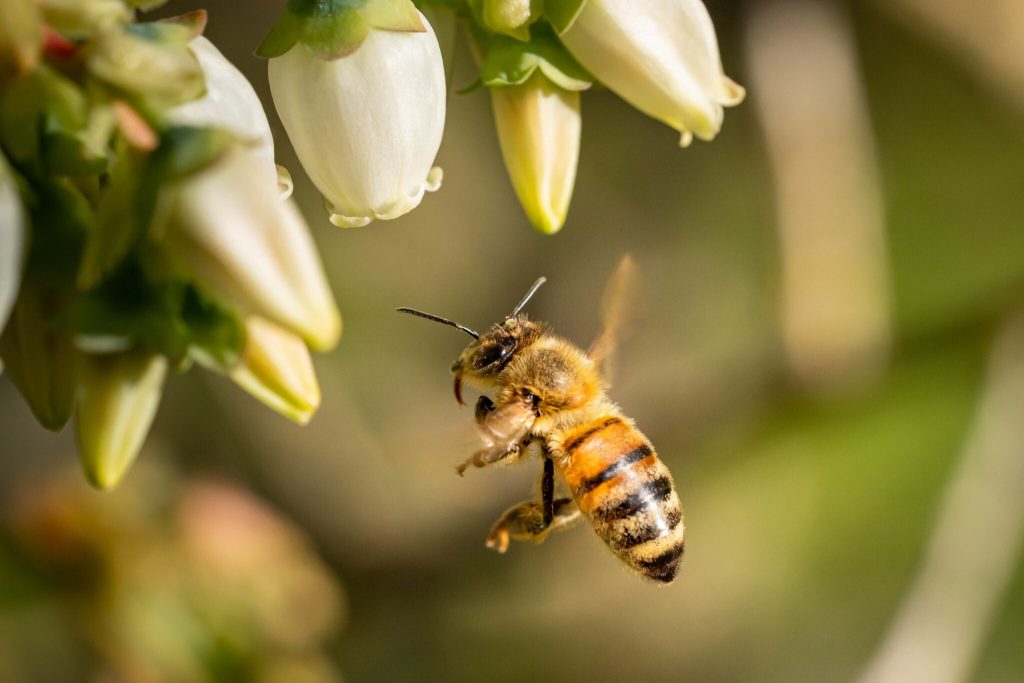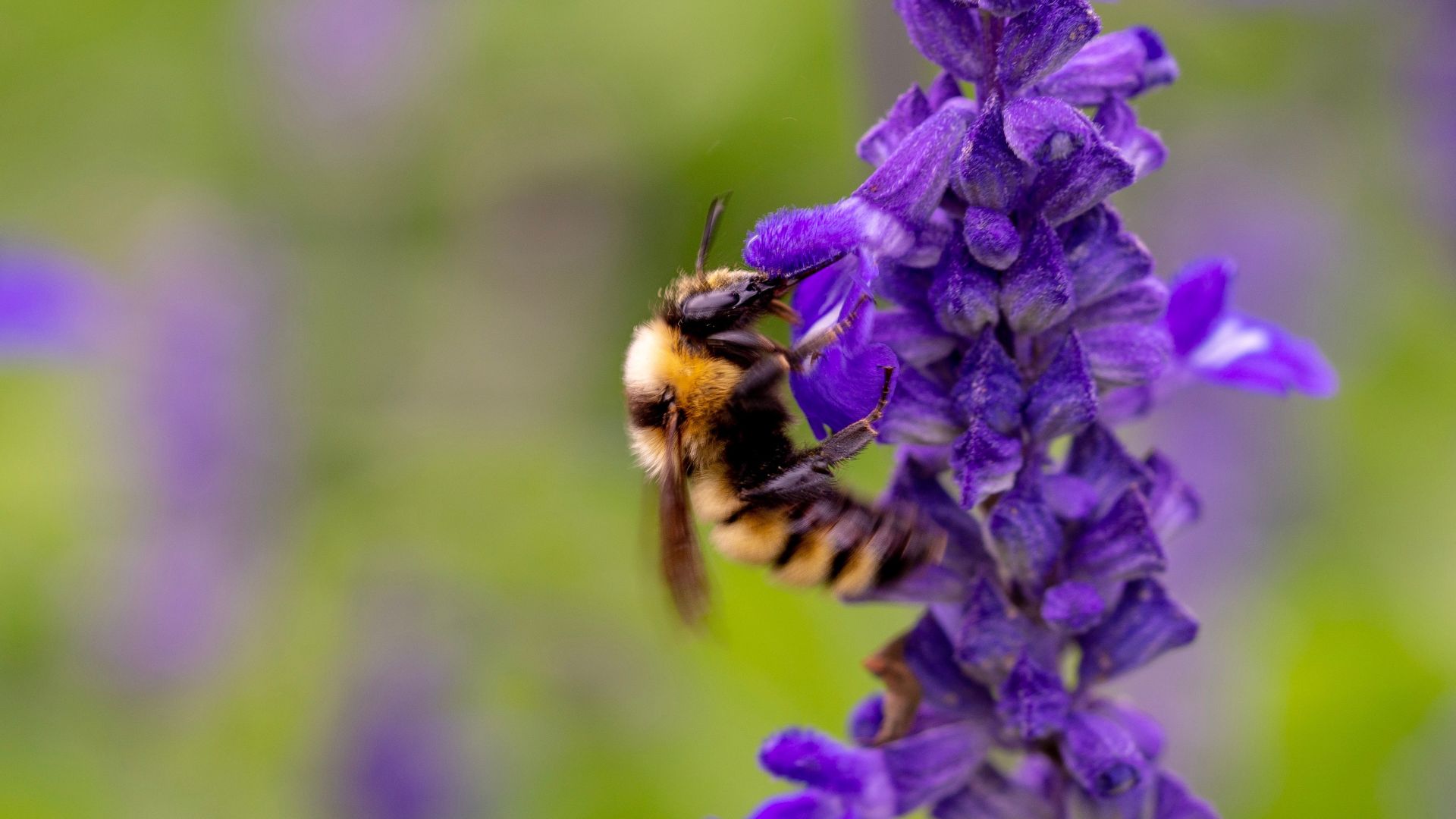What the buzz is all about – The essential role of bees
Bees, farmers’ lucky charm
Contrary to the common perception that natural habitats and protected areas have higher biodiversity than agricultural landscapes, it has been observed that farms can support greater density and diversity of pollinators under certain management practices.
According to the Food and Agriculture Organization – FAO, by implementing improved pollination management techniques, it is possible to increase crop yields by approximately 25 percent.
Therefore, well-managed farms have the potential to serve as excellent habitats for bees, which, in turn, provide vital pollination services for agricultural production. This shows the importance of promoting pollinator-friendly practices to sustain both biodiversity and agricultural productivity.
Bees conserve biodiversity
Animal pollination serves as a crucial regulating ecosystem service in nature. The majority of flowering plant species rely on pollinators to transfer pollen from the anthers to the stigmas of their flowers for successful seed production. Synchronization of biological events, such as insect emergence and flowering onset, is essential for effective pollination interactions.
The healthy functioning of ecosystem services is vital for the sustainability of agriculture. Bees and forest beekeeping contribute to the sustainability of forest ecosystems by providing essential pollination services, leading to improved tree regeneration and the conservation of forest biodiversity. Bees and other pollinators play a pivotal role not only in environmental and biodiversity conservation but also in various dimensions of global sustainable development.

- Bees boost yields
Pollination, although often unseen by the naked eye, plays a crucial role in agriculture, yielding significant returns. According to the FAO, the global crop value directly linked to pollinators is estimated to range between US$235 and US$577 billion annually.
And the significance of pollinators continues to grow. In the past 50 years alone, the volume of agricultural production reliant on pollinators has surged by 300 percent. These statistics highlight the essential role that pollinators play in sustaining livelihoods worldwide.
- Bees help end Hunger
Bees play a significant role in achieving the Zero Hunger goal, which is one of the 17 Sustainable Development Goals. Their importance stems from the fact that nearly three-quarters of the world’s crop species rely, either fully or partially, on bees and other pollinators. This aligns with the key principles of the 2030 Agenda for Sustainable Development, as bees contribute to nourishing people and nurturing the planet.
However, bee populations are declining…
Research in biodiversity has marked an alarming decline in pollinator populations, which is attributed to:
- Intensive agricultural practices,
- Changes in land use,
- Pesticide usage, and
- Extreme weather events.
These factors have led to pest and disease outbreaks and higher levels of malnutrition.
The key? Sustainable agriculture for bees, and all pollinators.
When asked about the aims of their farming practices, growers often refer to production, plant health, pest management, and other crop-centered variables. Only this just scratches the surface of good sustainable practices. Here are a few practices you can adopt to farm responsibly and make the most out of the bee benefits:

- Promote landscape diversity
If you’ve read Birds – Farmers’ Best Partner, you know how important landscape diversity is for wildlife, and how pivotal it is to the role of beneficial actors on yields and production. Incorporating various elements such as hedges, wildflower field margins, and earth paths… is a great way to preserve pollinators, if performed in a way that suits the specific landscape type, region, and climate.
- Pamper your pollinators
Consider bees your number one partner, and cater to their specific needs. Some examples include providing suitable nesting places, host plants for butterflies (including their caterpillars), and water sources for certain hoverflies.
- IPM is the way to go
We are not asking you to cut pesticides for good and let the pests ravage your crops. Integrated Pest Management (IPM) calls for wise and informed pesticide usage. This includes ensuring that natural areas remain unaffected by agricultural practices, reducing pesticide drift, and establishing buffer zones to minimize the impact of agriculture on surrounding natural habitats.
- Know your pesticides
Taking a couple of minutes to read the labels can bring so much information on the adequate use of pesticides and its implication on your health, and the health of your surrounding environment. Next time you plan to use a pesticide, have a look at its effect on pollinators, notably bees.
To help you on your bee-saving journey, Debbane Agri is in a constant quest to widen its portfolio of bio-products that are also bee-friendly. A couple of bio-solutions that you can incorporate into your agricultural practices without harming these pollinators are Siltac, Novotreat, and Novosafe.
In conclusion, sustainable farming practices and the preservation of bee populations go hand in hand. While the preservation of bees is not an isolated case, it is a critical part of our commitment to environmental sustainability, global food security, and the well-being of our planet. Together, we can protect these buzzing wonders and secure a brighter future for both bees and humans.

